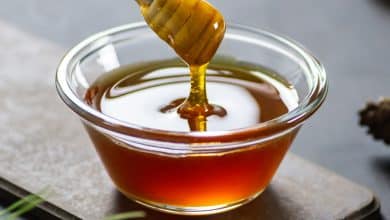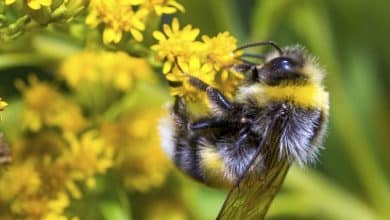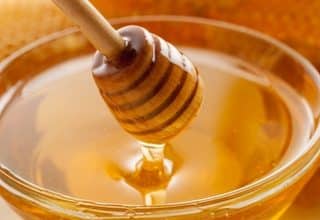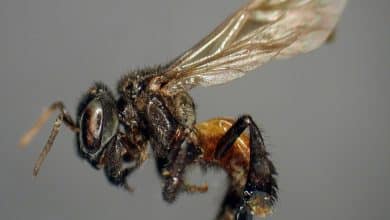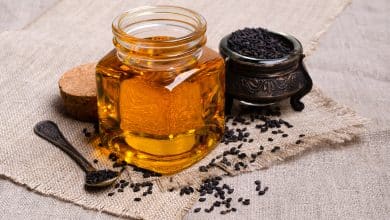honey bee pollen
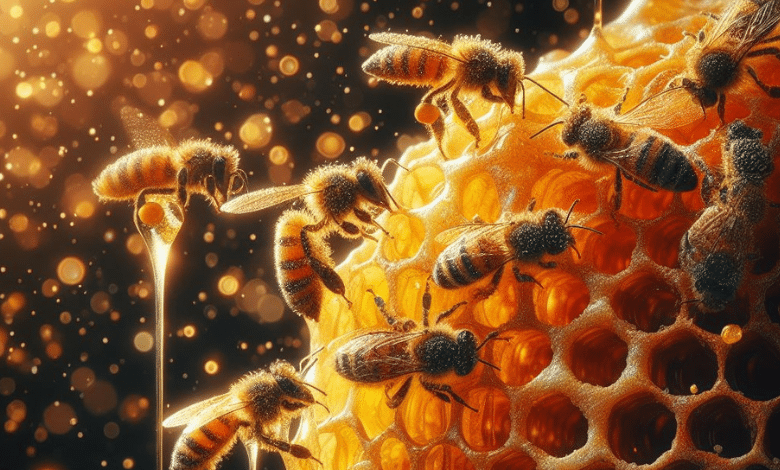
What is Honey Bee Pollen?
Honey bee pollen is a raw material produced by bees as they collect pollen from the anthers of flowers. The bees mix the collected pollen with a small amount of their saliva or nectar and store it in specialized baskets on their hind legs called corbiculae. These pollen loads are then transported back to the hive where they are used as food for the bee larvae and the adult bees.
Bee pollen is often referred to as a “superfood” due to its rich nutritional composition. It is packed with essential vitamins, minerals, carbohydrates, lipids, and protein. It also contains enzymes, antioxidants, and other bioactive compounds that offer numerous health benefits.
It’s important to note that honey bee pollen should not be confused with other bee products such as natural honey, honeycomb, bee venom, or royal jelly. While these products have their own unique properties, they do not contain bee pollen.
Honey bee pollen has been used for its medicinal properties for centuries. It is believed to have anti-inflammatory, antioxidant, and immune-boosting effects. It has also been used in traditional medicine to treat various health conditions including allergies, digestive issues, and low energy levels.
Incorporating honey bee pollen into your diet can be done by sprinkling it on top of cereals, smoothies, or yogurt. It can also be used as a topping for salads or added to baked goods. Additionally, honey bee pollen can be used topically as a natural ingredient in skincare products.
When purchasing honey bee pollen, it’s important to choose products from reputable sources to ensure their quality and purity. Local beekeepers are often a great option as they can provide fresh and locally sourced honey bee pollen. Always start with a small amount when introducing honey bee pollen into your diet to rule out any potential allergic reactions.
In conclusion, honey bee pollen is a nutrient-dense substance produced by bees. It offers a wide range of health benefits and can be incorporated into various aspects of our lives, from our diet to skincare routines. By understanding its properties and precautions, we can harness the full potential of this natural superfood.
Introduction to honey bee pollen
Honey bee pollen is a remarkable substance that is produced by bees as they collect pollen from the anthers of flowers. This natural product is often referred to as a “superfood” due to its exceptional nutritional content and wide range of health benefits.
Honey bee pollen is created through a fascinating process. As bees fly from flower to flower, they use their specialized legs to collect the pollen grains that are produced by the flowers. The bees then transport these pollen grains back to their hive, where they are mixed with a small amount of their own saliva or nectar. This mixture is stored in specialized baskets on their hind legs called corbiculae.
The resulting honey bee pollen is packed with essential nutrients, including vitamins, minerals, carbohydrates, lipids, and protein. It also contains enzymes, antioxidants, and other bioactive compounds that contribute to its numerous health benefits.
Throughout history, honey bee pollen has been highly regarded for its medicinal properties. It has been used in traditional medicine to treat a variety of health conditions, including allergies, digestive issues, and low energy levels.
Incorporating honey bee pollen into your diet is easy and can be done by adding it to cereals, smoothies, yogurt, or baked goods. Additionally, it can be used topically as a natural ingredient in skincare products.
When purchasing honey bee pollen, it is important to ensure that you are getting a high-quality product from reputable sources. Local beekeepers are often a reliable option, as they offer fresh and locally sourced honey bee pollen. As with any new food, it is recommended to start with small amounts to rule out any potential allergic reactions.
By incorporating honey bee pollen into your daily routine, you can enjoy its nutritional benefits and harness the power of this extraordinary natural superfood.
The nutritional composition of honey bee pollen
Honey bee pollen is renowned for its exceptional nutritional profile, making it a highly sought-after superfood. Packed with essential nutrients, honey bee pollen offers a wide range of health benefits.
The composition of honey bee pollen is impressive. It contains an average of 227% protein, including essential amino acids such as methionine, lysine, threonine, histidine, and leucine. These amino acids are crucial for maintaining overall health and supporting various bodily functions.
In addition to protein, honey bee pollen is rich in vitamins and minerals. It is a good source of B vitamins, including thiamin, riboflavin, niacin, and pantothenic acid. It also contains vitamin C, vitamin E, and beta-carotene, which are powerful antioxidants that help protect the body against oxidative stress.
Furthermore, honey bee pollen is a great source of minerals such as calcium, magnesium, potassium, and zinc. These minerals play important roles in maintaining healthy bones, muscles, and overall cellular function.
Notably, honey bee pollen also contains lipids, enzymes, antioxidants, and other bioactive compounds that contribute to its health-enhancing properties.
It is important to note that the nutritional composition of honey bee pollen can vary depending on the geographic location and the types of flowers from which the bees collect pollen. Therefore, the specific nutrient content may differ slightly based on these factors.
Overall, honey bee pollen offers an array of essential nutrients that support overall health and well-being. Incorporating honey bee pollen into your diet can be a great way to boost your nutritional intake and harness the many benefits of this remarkable superfood.
Health Benefits of Honey Bee Pollen
Honey bee pollen is prized for its numerous health benefits. Here are some of the key advantages of incorporating honey bee pollen into your diet:
- Antioxidant properties: Honey bee pollen is rich in antioxidants, which help protect the body against damage caused by harmful free radicals. These antioxidants can help reduce the risk of chronic diseases and support overall wellness.
- Anti-inflammatory effects: Research suggests that honey bee pollen may possess anti-inflammatory properties. It can help reduce inflammation in the body, potentially alleviating symptoms of inflammatory conditions such as arthritis.
- Immune system support: Honey bee pollen contains immune-boosting compounds that can enhance the body’s natural defense mechanisms. It can help strengthen the immune system and protect against infections and diseases.
- Energy and stamina: The high protein content in honey bee pollen can provide a natural energy boost. It is a favorite supplement among athletes and individuals looking for increased stamina and endurance.
- Digestive health: Honey bee pollen contains enzymes that aid in digestion, promoting a healthy gut. It can help alleviate digestive issues such as bloating, constipation, and indigestion.
- Skin health: The vitamins and antioxidants in honey bee pollen can nourish the skin and promote a youthful complexion. It may help reduce signs of aging and improve overall skin health.
Remember to consult with a healthcare professional before incorporating honey bee pollen into your routine, especially if you have any existing health conditions or are taking medications.
Antioxidant properties of honey bee pollen
Honey bee pollen is known for its powerful antioxidant properties, making it a valuable addition to any diet. Antioxidants play a crucial role in protecting the body against damage caused by harmful free radicals. These unstable molecules can cause oxidative stress, which has been linked to chronic diseases and aging.
The antioxidant capacity of honey bee pollen comes from its rich content of bioactive compounds, such as phenolic compounds and flavonoids. These compounds have been found to have strong antioxidant effects, helping to neutralize free radicals and reduce oxidative damage in the body.
Studies have shown that honey bee pollen has a high antioxidant activity. In one study, honey bee pollen samples were tested for their ability to scavenge free radicals using the ABTS and DPPH assays. The results showed that honey bee pollen has a significant antiradical activity, with higher levels of antioxidants as compared to other natural products.
Furthermore, researchers have found that the antioxidant activity of honey can be enhanced by the addition of bee pollen. This means that incorporating honey bee pollen into your diet can potentially provide even more antioxidant protection for your body.
In conclusion, honey bee pollen is a nutrient-rich superfood that offers a wide range of health benefits, including its powerful antioxidant properties. Adding honey bee pollen to your daily routine can help protect your body against oxidative damage and contribute to overall wellness.
Honey bee pollen and its potential anti-inflammatory effects
Honey bee pollen has been shown to have potential anti-inflammatory effects, making it a valuable natural remedy for various inflammatory conditions. Inflammation is the body’s natural response to injury or infection, but chronic inflammation can lead to serious health issues.
Several studies have demonstrated the anti-inflammatory properties of honey bee pollen. It contains bioactive compounds such as phenolic compounds and flavonoids, which have been shown to inhibit the activity of enzymes that cause inflammation. Research has found that these compounds can help reduce the production of inflammatory mediators in the body, thus alleviating inflammation.
Furthermore, honey bee pollen has been found to suppress the release of histamine, a key player in inflammatory reactions. Histamine is known to contribute to the symptoms of conditions such as allergies and asthma. By inhibiting histamine release, honey bee pollen can help reduce the severity of allergic reactions and alleviate respiratory symptoms associated with inflammation.
In addition to its direct anti-inflammatory effects, honey bee pollen also supports overall immune health. By strengthening the immune system, it can help reduce the risk of chronic inflammation and promote optimal immune function.
It’s important to note that while honey bee pollen shows promise as an anti-inflammatory remedy, more research is needed to fully understand its mechanisms and effectiveness in different inflammatory conditions. As always, it’s best to consult with a healthcare professional before incorporating honey bee pollen or any other supplements into your healthcare routine.
How to Use Honey Bee Pollen
When it comes to incorporating honey bee pollen into your daily routine, there are several ways to enjoy its benefits. Here are some simple and effective ways to use honey bee pollen:
- Incorporating honey bee pollen into your diet: Honey bee pollen can be sprinkled on top of cereals, yogurt, salads, or smoothie bowls for an added nutritional boost. Start with a small amount and gradually increase your intake to ensure your body tolerates it well.
- Mixing honey bee pollen with honey or other foods: If you find the taste of honey bee pollen too strong, you can mix it with honey, nut butter, or other spreads to make it more palatable. You can also add it to homemade energy bars or protein balls for an added burst of nutrients.
- Adding honey bee pollen to your beverages: Honey bee pollen can be added to smoothies, juices, or herbal teas for an extra layer of flavor and nutrition. Be sure to blend or stir it well to fully incorporate the pollen.
- Using honey bee pollen as a topical treatment: Honey bee pollen can be mixed with natural oils, such as coconut oil or almond oil, to create a nourishing and exfoliating scrub for the skin. Gently massage it onto your face or body in circular motions and rinse off with warm water for a revitalizing experience.
Remember, it is important to start with small amounts of honey bee pollen and monitor your body’s response. If you experience any adverse reactions, such as allergies or digestive discomfort, discontinue use immediately and consult with a healthcare professional.
Overall, honey bee pollen offers a versatile and nutritious addition to your daily routine. Be creative and experiment with different ways to incorporate it into your diet and skincare regimen.
Incorporating honey bee pollen into your diet
Incorporating honey bee pollen into your diet is a simple and effective way to take advantage of its nutritional benefits. Here are some tips for incorporating honey bee pollen into your daily meals and snacks:
- Sprinkle it on top of cereals or yogurt: One of the easiest ways to enjoy honey bee pollen is by sprinkling it on top of your favorite breakfast foods like cereals or yogurt. Not only does it add a delightful crunch, but it also provides a boost of nutrients.
- Mix it with smoothies or juices: Blend honey bee pollen into your favorite smoothies or juices for an extra dose of nutrition. It blends well with fruits, vegetables, and other superfood ingredients, enhancing the flavor and nutritional profile of your beverage.
- Add it to salads: Sprinkle honey bee pollen on salads to add a unique flavor and texture. It pairs well with greens, nuts, and fruits, transforming an ordinary salad into a nutrient-rich powerhouse.
- Incorporate it into baked goods: Get creative in the kitchen by adding honey bee pollen to homemade baked goods like energy bars, protein balls, or granola bars. It adds a natural sweetness and nutritional boost to your treats.
Remember to start with a small amount of honey bee pollen and gradually increase your intake, as some individuals may be sensitive to its taste or have allergies. Consult with a healthcare professional if you have any concerns or questions. Enjoy the benefits of honey bee pollen and explore different ways to incorporate it into your diet for a healthier and more nutritious lifestyle.
Topical uses of honey bee pollen for skincare
Honey bee pollen is not only beneficial when ingested, but it also has notable advantages when used topically for skincare. Its rich nutritional composition makes it a valuable ingredient in various skincare products and treatments. Here are some of the topical uses of honey bee pollen for skincare:
- Moisturization: Honey bee pollen is rich in vitamins, minerals, and amino acids, which help to nourish and hydrate the skin. Including honey bee pollen in moisturizers or facial masks can provide deep hydration, leaving the skin soft and supple.
- Anti-aging effects: The antioxidants present in honey bee pollen help to combat free radicals and reduce oxidative stress on the skin. This can help slow down the aging process, improving the appearance of fine lines, wrinkles, and age spots.
- Acne treatment: Raw honey, a key component of honey bee pollen, has natural antibacterial properties. When applied topically, honey bee pollen can help to soothe and heal acne-prone skin, reducing inflammation and preventing further breakouts.
- Skin brightening: Honey bee pollen contains enzymes that can help exfoliate the skin gently, promoting a brighter complexion. When used in facial scrubs or masks, it can help remove dead skin cells, revealing fresh and radiant-looking skin.
- Soothing properties: Honey bee pollen has soothing properties that can calm irritated or sensitive skin. It can help reduce redness, inflammation, and itching, making it suitable for individuals with conditions like eczema or psoriasis.
When using honey bee pollen topically, it is essential to choose high-quality products or consult a dermatologist for proper guidance. Additionally, it is advisable to perform a patch test before applying honey bee pollen to the entire face to check for any potential allergic reactions.
Potential Side Effects and Precautions
When it comes to using honey bee pollen, there are a few potential side effects and precautions to keep in mind. While bee pollen is generally considered safe for most people, it’s important to be aware of possible allergic reactions. Some individuals may be allergic to bee pollen and may experience symptoms such as hives, difficulty breathing, swelling of the face, lips, tongue, or throat. If you have a known allergy to bee products, it is best to avoid using honey bee pollen.
In addition, long-term use of bee pollen may cause serious side effects. It is recommended to limit the use of bee pollen to no more than 30 days to avoid potential complications. If you experience any adverse reactions while using honey bee pollen, such as skin rash, bruising, severe tingling, numbness, pain, muscle weakness, or upper stomach pain, it is important to discontinue use and seek medical attention.
It is always advisable to consult with a healthcare professional before incorporating honey bee pollen into your diet or skincare routine, especially if you have any pre-existing medical conditions or are taking medications. They can provide personalized advice and help determine if honey bee pollen is suitable for you.
Overall, while honey bee pollen offers numerous health benefits, it is essential to exercise caution and be mindful of any potential side effects or precautions.
Allergic reactions to honey bee pollen
Allergic reactions to honey bee pollen can occur in individuals who are allergic to certain types of pollen. Bee pollen is a known allergen and can trigger an allergic response when consumed or applied topically. These reactions can range from mild to severe and may include symptoms such as itching, swelling, hives, shortness of breath, dizziness, and in severe cases, anaphylaxis.
Anaphylaxis is a serious and potentially life-threatening allergic reaction that requires immediate medical attention. It can cause difficulty breathing, a rapid drop in blood pressure, and loss of consciousness. If you experience any of these symptoms after consuming or using honey bee pollen, it is important to seek emergency medical care.
It is crucial for individuals with known pollen allergies to exercise caution when using honey bee pollen. It is recommended to perform a patch test on a small area of skin before using topical products containing bee pollen. If an allergic reaction occurs, it is advisable to discontinue use immediately.
To prevent allergic reactions, individuals with known pollen allergies should avoid consuming honey bee pollen altogether. It is also important to read product labels and check for any potential allergens before using honey bee pollen-based skincare products.
In summary, while honey bee pollen offers various health benefits, it can trigger allergic reactions in individuals who are allergic to specific types of pollen. It is essential to exercise caution, perform patch tests, and seek medical attention if any allergic symptoms occur.
Safety precautions when consuming honey bee pollen
When consuming honey bee pollen, it is important to take certain safety precautions. While honey bee pollen offers various health benefits, it can also pose risks for certain individuals. Here are some safety measures to keep in mind:
- Allergies: Honey bee pollen is a known allergen and can trigger allergic reactions in individuals who are allergic to specific types of pollen. It is crucial for individuals with known pollen allergies to avoid consuming honey bee pollen altogether.
- Pregnancy and breastfeeding: Pregnant and breastfeeding women should exercise caution when consuming honey bee pollen. There is some concern that it may stimulate the uterus to contract, which could potentially be harmful. It is recommended that pregnant and breastfeeding women do not consume honey bee pollen.
- Medications and herbals: If you are taking any medications, including over-the-counter medicines or herbals, it is important to check with your doctor before consuming honey bee pollen. Bee pollen may interact with certain medications or increase the risk of bleeding when taken with blood thinners like warfarin.
- Quality and source: When purchasing honey bee pollen, it is important to ensure that you are buying from a reputable source. Look for products that have been tested for purity and quality. Additionally, consider buying from local beekeepers who follow sustainable and ethical practices.
By following these safety precautions, individuals can minimize the potential risks associated with consuming honey bee pollen and enjoy its various health benefits.
Where to Buy Honey Bee Pollen
Finding high-quality honey bee pollen products can be key to reaping its benefits. Here are some options to consider for purchasing honey bee pollen:
- Health Food Stores: Many health food stores carry honey bee pollen in their supplement section. Look for stores that specialize in natural and organic products, as they are more likely to offer high-quality options. Be sure to check the product labels for information on sourcing and processing methods.
- Online Retailers: There are numerous online retailers that offer honey bee pollen. Look for reputable websites that provide detailed product descriptions, customer reviews, and information about the source and production methods. It’s also a good idea to check if the seller follows sustainable and ethical practices.
- Local Beekeepers: Buying honey bee pollen directly from local beekeepers can be a great way to support local businesses and ensure freshness. Check for farmers’ markets, honey festivals, or beekeeping associations in your area. Local beekeepers often have their own bee pollen available for purchase, and they can provide valuable information about their products.
Remember to prioritize quality, purity, and transparency when choosing where to buy honey bee pollen. Choose products that are tested for purity and adhere to sustainable and ethical practices. By doing so, you can enjoy the benefits of honey bee pollen with confidence.
Finding high-quality honey bee pollen products
When it comes to purchasing honey bee pollen, it’s important to find high-quality products to ensure that you are reaping the maximum benefits. Here are some tips to help you find the best honey bee pollen:
- Look for reputable brands: Start your search by looking for brands that have a reputation for producing high-quality bee pollen products. Check for certifications or awards that indicate their commitment to quality.
- Read product labels: Pay close attention to the information provided on the product labels. Look for details about the sourcing and production methods. Ideally, the bee pollen should be sourced from organic and sustainable bee farms.
- Check for purity testing: Ensure that the honey bee pollen has undergone purity testing to ensure that it is free from contaminants, such as pesticides and heavy metals. This information is often mentioned on the product packaging or the brand’s website.
- Consider processing methods: Different brands may use different processing methods for their bee pollen. Look for brands that utilize gentle processing methods to retain the nutritional integrity and potency of the pollen.
- Customer reviews: Take the time to read customer reviews and testimonials about the honey bee pollen products you are considering. This can give you valuable insights into the quality and effectiveness of the product.
Remember, high-quality honey bee pollen should have a fresh, aromatic smell and vibrant color. It should also be stored in a cool, dark place to maintain its nutritional properties. By following these tips, you can ensure that you are purchasing honey bee pollen of the highest quality for your health and wellness needs.
Buying honey bee pollen from local beekeepers
When it comes to purchasing honey bee pollen, one excellent option is to buy directly from local beekeepers. Buying honey bee pollen from local beekeepers offers several distinct advantages.
Firstly, purchasing from local beekeepers allows you to support the beekeeping industry in your community. Supporting local beekeepers helps to sustain the important work they do in maintaining bee populations and promoting pollination in your area. By purchasing honey bee pollen from them, you are contributing to the preservation of these vital pollinators.
Secondly, buying from local beekeepers ensures freshness and quality. Since the beekeepers typically collect the pollen directly from their own hives, you can be confident that the pollen is fresh and has not been subjected to extensive processing or transportation. This means that you can enjoy the maximum nutritional benefits that fresh honey bee pollen has to offer.
Additionally, buying from local beekeepers allows you to establish a direct connection with the source of your honey bee pollen. You can have the opportunity to learn more about beekeeping practices and even visit the hives if the beekeeper allows. This can enhance your overall understanding and appreciation for honey bees and the process of pollen collection.
To find local beekeepers who sell honey bee pollen, you can visit farmers markets, local honey shops, or inquire at agricultural organizations or beekeeping associations in your area. Local beekeepers are often passionate about their craft and will be more than happy to share information about their products and beekeeping practices.
In conclusion, buying honey bee pollen from local beekeepers is a fantastic way to support your local community and enjoy the benefits of fresh, high-quality pollen. Connect with your local beekeepers and experience the natural goodness of their honey bee pollen products.
Conclusion
In conclusion, honey bee pollen is a versatile and nutrient-rich superfood that offers numerous health benefits. Its antioxidant properties help to combat oxidative stress and protect the body against cellular damage. Additionally, honey bee pollen has been found to have potential anti-inflammatory effects, which can contribute to overall health and wellness.
When incorporating honey bee pollen into your diet, it is important to start with small amounts and gradually increase the dosage to minimize the risk of allergic reactions. It can be added to smoothies, yogurt, or sprinkled on top of salads for a nutritious boost. For topical use, honey bee pollen can be infused into skincare products to enhance their benefits and promote healthy-looking skin.
When considering purchasing honey bee pollen, it is advisable to look for high-quality products from reputable sources. This can include purchasing directly from local beekeepers, who provide fresh and unprocessed pollen. Supporting local beekeepers not only ensures the freshness and quality of the product but also contributes to the preservation of honey bee populations and the promotion of pollination in the community.
Incorporating honey bee pollen into a healthy lifestyle can offer a multitude of benefits. However, it is always important to consult with a healthcare professional before making any significant changes to your diet or skincare routine. With its nutritional composition and potential health benefits, honey bee pollen is a natural and nourishing addition to any wellness regimen. Give it a try and experience the natural goodness of honey bee pollen for yourself.
Summary of the benefits and uses of honey bee pollen
Honey bee pollen is a nutrient-rich superfood that offers numerous health benefits. Its antioxidant properties help combat oxidative stress and protect the body against cellular damage. Additionally, honey bee pollen has potential anti-inflammatory effects, which can contribute to overall health and wellness.
Incorporating honey bee pollen into your diet can provide a range of benefits. It can support immune function, enhance energy levels, and improve digestion. Honey bee pollen also contains vitamins, minerals, and essential amino acids that are vital for maintaining overall health.
Not only can honey bee pollen be consumed internally, but it can also be used topically for skincare purposes. Infusing honey bee pollen into skincare products can help promote healthy-looking skin and provide nourishment.
When purchasing honey bee pollen, it is important to choose high-quality products from reputable sources. Buying directly from local beekeepers ensures freshness and quality while supporting local ecosystems and bee populations.
It is crucial to start with small amounts when incorporating honey bee pollen into your diet to minimize the risk of allergic reactions. Consulting with a healthcare professional is recommended before making any significant changes to your diet or skincare routine.
In conclusion, honey bee pollen is a natural and nourishing addition to any wellness regimen. Its versatile uses and numerous health benefits make it a valuable superfood to incorporate into a healthy lifestyle. So give honey bee pollen a try and experience its natural goodness for yourself.
Tips for incorporating honey bee pollen into a healthy lifestyle
Including honey bee pollen in your daily routine can be a beneficial way to enhance your overall health and well-being. Here are some tips for incorporating honey bee pollen into a healthy lifestyle:
- Start with small amounts: If you are new to honey bee pollen, it is important to start with small amounts to allow your body to adjust. Begin with ½ to 1 teaspoon per day and gradually increase the dosage.
- Mix it into smoothies: One easy way to incorporate honey bee pollen into your diet is by adding it to your favorite smoothie recipes. Blend it with fruits, vegetables, and your choice of liquid for a nutritious and delicious boost.
- Sprinkle it over foods: You can sprinkle honey bee pollen over foods like yogurt, oatmeal, salads, or even desserts. It adds a crunchy texture and a burst of flavor to your meals.
- Use it as a natural sweetener: Instead of using processed sugars, consider using honey bee pollen as a natural sweetener. It adds a subtle sweetness to your beverages, baked goods, or dressings.
- Experiment with recipes: Get creative in the kitchen and try incorporating honey bee pollen into various recipes. You can add it to homemade granola, energy bars, or even mix it into raw desserts for an extra nutritional boost.
- Seek guidance from a healthcare professional: Before making any significant changes to your diet, it is always wise to consult with a healthcare professional. They can provide personalized advice on how to incorporate honey bee pollen into your specific lifestyle and dietary needs.
Remember to source high-quality honey bee pollen from reputable suppliers to ensure its freshness and purity. By following these tips, you can easily incorporate honey bee pollen into your healthy lifestyle and enjoy its numerous benefits.
While the research journey into the potential benefits of bee pollen continues, we appreciate you taking the time to explore the topic with us. It’s a complex ingredient with a mix of minerals, carbohydrates, lipids, and proteins, harvested from the diligent work of bees. We recognize that bee products, including honey, royal jelly, and honeycomb, each have their unique properties and should not be confused with bee pollen. Whether you’re intrigued by bee pollen for its possible anti-inflammatory properties, immunity support, or other health-related reasons, it’s essential to stay informed and cautious.
At honey bee pollen, we’re committed to digging into the evidence and keeping you updated on the latest research findings. If you have any experiences with bee pollen, questions about its use, or insights into its effects, we’d love to hear from you. Your thoughts help us to better understand the needs and interests of our health-conscious community. Remember, before considering bee pollen or any other supplement to your diet, consulting with a healthcare provider is always wise. Here’s to your health and the continual quest for knowledge!

